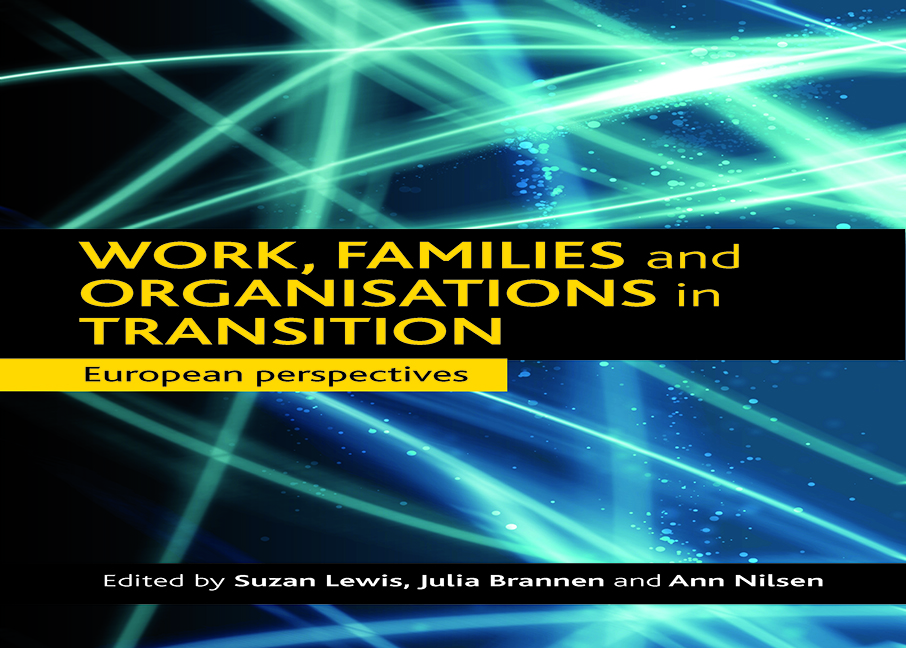Book contents
- Frontmatter
- Dedication
- Contents
- Acknowledgements
- Notes on contributors
- one Work, family and organisations in transition: setting the context
- two Research design and methods: doing comparative cross-national research
- Part One Public sector organisations
- Part Two Private sector organisations
- Part Three Comparisons
- Appendix
- References
- Index
six - Old rights in new times: the experiences of parents in a Slovenian organisation
Published online by Cambridge University Press: 16 July 2022
- Frontmatter
- Dedication
- Contents
- Acknowledgements
- Notes on contributors
- one Work, family and organisations in transition: setting the context
- two Research design and methods: doing comparative cross-national research
- Part One Public sector organisations
- Part Two Private sector organisations
- Part Three Comparisons
- Appendix
- References
- Index
Summary
Introduction and background
At the macro level, two processes contributed to change in organisations in Slovenia. The first was Slovenia's separation from Yugoslavia in 1991 and its transformation into an independent state, with its own political and economic systems. After the separation, Slovenia lost most of the Yugoslav market and had to replace it with exports to Western European and other countries. During the first phase of the transition to a social market economy, there was a drastic fall in economic activity and in the standard of living, extreme market instability and growing unemployment. In the middle of 1993, the economy bottomed out of the recession and entered a period of intensive restructuring of production and consumption. The second phase of transition involved intensive ownership, financial and managerial restructuring (Hanžek et al, 1998).
The privatisation process in Slovenia has created a high level of involvement by both employees and managers (Kanjuo-Mrčela, 2003). However, in the second phase of privatisation, share ownership in Slovenian companies grew (Simoneti et al, 2001). As Kanjuo-Mrčela (2003: 1) notes, the ‘involvement of non-managerial internal owners and state funds is decreasing while the share of investment funds and managers is increasing’. Nevertheless, in the first five years of the 21st century, various state and para-state funds/associations still held a significant share in about half of the big Slovenian enterprises. These ownership changes were accompanied by structural and functional modifications in enterprises. Workers’ self-management was abolished and the new Law on the Participation of Employees in the Management of Organisations provided some co-decisionmaking rights. The old trades unions were re-formed while some new ones were founded. They gained significant bargaining power and defended the interests of employees (Svetlik, 2005). Due to the drastic political and economic changes over the past two decades and the challenges brought by preparations for European Union and NATO membership (which happened in 2004), organisations in Slovenia were encountering constant change.
Coping with multiple societal and organisational changes is especially difficult for parents with young children. During the second half of the 20th century, Slovenia successfully developed public policies to enable parents to balance their work and family lives.
- Type
- Chapter
- Information
- Work, Families and Organisations in TransitionEuropean Perspectives, pp. 81 - 96Publisher: Bristol University PressPrint publication year: 2009



